Why choose Wolverhampton Grammar School Sixth Form
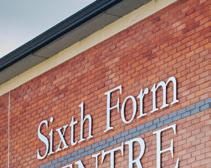
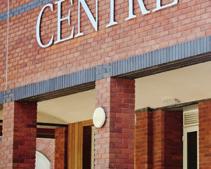
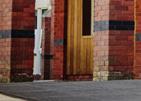

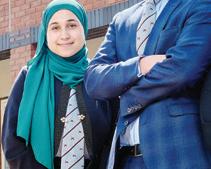


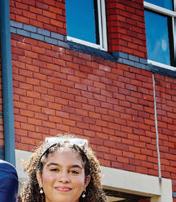
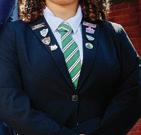












Thank you for considering Wolverhampton Grammar School’s Sixth Form. This is more than just the next step in your education, it’s a launchpad for your future. Our Sixth Form offers an exceptional experience for students aged 16 -18, combining academic excellence with personal growth, independence, and opportunity.
At WGS, we don’t just prepare students for exams we prepare them for life. With a proven track record of outstanding academic results and successful university, apprenticeship, and career placements, our Sixth Form is designed to help every student thrive. Whether your ambition is Oxbridge, a Russell Group university, a specialist arts institution, or direct entry into the world of work, we tailor your journey to suit your goals.
What sets us apart? Flexibility, individuality, and support. We build our timetable around you; not the other way around. With over 20 academic courses, including A Levels and vocational qualifications, you’re free to choose the subjects that inspire you most. Small class sizes and expert teachers ensure you receive the attention and challenge you need to reach your full potential.
Our dedicated Sixth Form Centre is a vibrant hub of learning and community, where students enjoy the freedom to grow with the reassurance of outstanding pastoral care. Every student is part of a close-knit tutor group and one of our four Houses, creating a strong sense of belonging and support.

Wolverhampton Grammar School’s Sixth Form is a place where individuality is celebrated, ambition is nurtured, and futures are forged. We invite you to visit us and discover how we can help you achieve your goalsand much more.





to student-led societies, volunteering, everyone. These experiences build confidence, friendships, and skills that
Beyond the classroom, our students enjoy the widest range of extracurricular activities of any school in the area. From sport, music and drama to student-led societies, volunteering, journalism, and the Duke of Edinburgh’s Award - there’s something for everyone. These experiences build confidence, friendships, and skills that last a lifetime.
And








Nic Anderson

Nic Anderson Head







second to none. You’ll also benefit from exclusive access to our global


And when it comes to planning your future, our personalised Higher Education and Careers guidance is second to none. You’ll also benefit from exclusive access to our global alumni network - the Old Wulfrunians, who offer mentoring, professional insights, and inspiration from every field imaginable.




who offer mentoring, professional insights, and inspiration from every











As Head of Sixth Form and Higher Education, Rhi leads on the day-to-day pastoral care and academic progress of our Sixth Form students. She is responsible for the strategic development of the Sixth Form provision at WGS and oversees students’ university applications, including leading a rigorous programme of interviews for early applicants.


I joined Wolverhampton Grammar School in 2021 after teaching for three years at an international school in Dubai. As a Biology teacher I have worked closely with A-level students over the last 4 years. Prior to my current role, I served as Assistant Head of Jenyns House. Now as Assistant Head of Sixth Form, I focus on the academic progress and pastoral support of the Lower Sixth, helping students navigate the critical transition into sixth form life.
I enjoy being Assistant Head of Sixth Form because it allows me to support students both academically and personally. I’m passionate about helping them make strong academic progress while also encouraging them to get involved in clubs, sports, and extracurricular activities to become well-rounded and prepared for life beyond school.
“Working in the Sixth Form affords me the opportunity to have a positive impact on students at one of the most pivotal times of their development. The myriad of conversations I have with students in which they begin to shape their futures is the highlight of my week and a real privilege.”


As Assistant Head of Sixth Form and teacher of Chemistry, Dr Green focuses on the academic and pastoral care of our Upper Sixth students. This includes providing guidance and support throughout their final year, including through the university application process. Dr Green works closely with students to ensure they are fully prepared for the next stage of their journey, both academically and personally.
“Supporting the Upper Sixth through such a significant and exciting stage of their education is a privilege. Helping students realise their aspirations and take the next steps towards their futures is one of the most rewarding aspects of my role.”
We are confident that our weekly contact time is region-leading. Each fortnight we teach nearly 11 hours per subject in the Lower Sixth and 10 hours per subject in the Upper Sixth to enable students to better hone their subject knowledge. Enviable staff-to-student ratios, with small class sizes, ensure that we get to know our students extremely well and can help them get the most out of their time at Wolverhampton Grammar School. We have an outstanding academic reputation and track record for helping students successfully enter the university, or other post-18 pathway, of their choice.
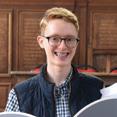
THOMAS CURRENT STUDENT
From Art to Languages, Business to Psychology, Chemistry to Sport, you can study from a choice of 20 A Levels and 2 Cambridge Technicals. Many of our students also take the Extended Project Qualification. A huge advantage of choosing our Sixth Form is the flexibility in subject choice with no option blocks curtailing combinations. At Wolverhampton Grammar School, we go the extra mile to make your preferred subject options work for you.
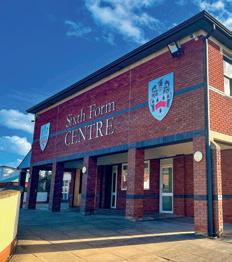
“I am so grateful for all the support and opportunities I receive from staff at WGS, and I really value all the unique experiences that the school has to offer. I am currently the Head Student Librarian with responsibility for leading the Jenyns Library - which is a library like no other. In academic terms, staff are so passionate about their subjects and the support they provided throughout my GCSEs was immense and this certainly continues throughout Sixth Form.
Over my years at WGS my confidence has grown so much as I have been able to deliver assemblies and teach lessons to younger students. We have such excellent pastoral support too, whether that be through the House System or regular check-in meetings with the Heads of Sixth Form. I genuinely enjoy coming to school each day because WGS is a very special place.”



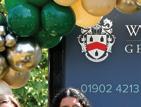

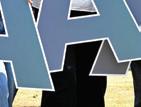

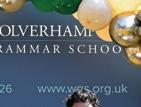



You would expect nothing less than access to the very best inspirational teaching from the top independent school in Wolverhampton.
The academic achievements of our students speak for themselves; but our teachers are proud to deliver much more than that.
All of our teachers are experts in their own academic disciplines, trained and experienced professionals who love their subjects as much as they enjoy
teaching our students. The lessons are lively and challenging, and knowledge here is treasured, opening up minds to a love of learning.
Small class sizes and space for individual tuition enables our teachers to get to know you better. We adapt the curriculum to suit every individual and will encourage you to understand your own learning needs. Boys and girls excel at Wolverhampton Grammar School Sixth Form.




Passed all A Level qualifications 100%
Gained a Merit or higher in the Cambridge Technicals 100%
Our students secure places at the most prestigious universities including Oxford and Cambridge
Our Sixth Form team, along with the Exams Officer, ensure every student is supported with the very best pastoral, administrative and exam board guidance.
From assemblies to discuss time management and relaxation techniques, to explaining complex exam processes in a friendly and accessible way – we are always available to students and parents to answer any questions.
Results days can be stressful enough without the worry about what to do once you’ve received your results. We have an expert team available on the day, and beyond, to talk through exam results, grade boundaries and post-results services including reviews of marking and access to scripts – our team will be on hand for however long it takes.

VISHWAS KUMAR CLASS OF 2023
Vishwas achieved 4 straight A* at A Level and is in his second year studying Engineering at the University of Oxford.
“I received lots of very helpful advice for both Sixth Form and my future aspirations. We were prepared for interviews, visited careers fairs and were shown how to complete a personal statement. Overall, it meant that I felt guided through every stage of the application process, never leaving me feeling lost.”
Dedicated Sixth Form Team
Expert Examinations Team
A* and A grades awarded at A Level this year 44% of students were awarded A* with six students achieving straight A*s 22%
A* – B grades at A Level this year 76%
Personalised support on Results Day
Specialists in Oxbridge, Medicine, Veterinary and Dentistry applications
Adjustment and Clearing advice –making sure you get the university place you deserve
Bangor University Medical Sciences
University of Birmingham Biomedical Science
University of Birmingham Business Management with Marketing University of Birmingham Economics
University of Birmingham Law with Criminology
Birmingham City University Law
Birmingham Newman University Primary Education (3-11) with QTS
Cardiff University Biochemistry
Cardiff University Law
University of Cambridge Engineering
University of Cambridge Veterinary Medicine
Durham University History
Durham University Anthropology
University of Exeter Business and Management with Industrial Experience
University of Gloucestershire Graphic Design
University of Gloucestershire Cyber Security
Keele University Accounting & Finance
Keele University Computer Science and Music Production
King’s College London, University of London Dentistry
University of Leeds Nutrition
University of Leeds History and Philosophy
University of Leeds Medicine
Leeds Arts University Creative Writing
University of Leicester History
University of Leicester Accounting & Finance
University of Leicester Software Engineering with a Year in Industry
University of Liverpool Veterinary Science
University of Liverpool Accounting and Finance
University of Liverpool Medicine
Liverpool John Moores University Sport and Exercise Science
Liverpool John Moores University Criminology
University of Manchester International Business, Finance & Economics w IE
Manchester
Metropolitan University Educational Psychology
Manchester
Metropolitan University Digital Media and Communications
Newcastle University Biochemistry
University of Nottingham Architecture
University of Plymouth Marine Biology
Queen Mary University of London History and Politics with a Year Abroad
Queen Mary University of London Aerospace Engineering with a Year Abroad
St George’s (City St George’s, University of London) Medicine (MBBS)
St George’s (City St George’s, University of London)
University of Sunderland Medicine
University of Sussex Biomedical Science
Mathematics Finance & Economics with Foundation Year
University of Southampton Accounting & Finance with Placement Year
Swansea University Chemical Engineering with Foundation Year
University of York Physics with Astrophysics The list of this year’s university destinations is testament to the wide opportunities experienced during students’ time at
Swansea University Pharmacy with Foundation Year
UCL (University College London) History
UCL (University College London) Economics
University of Warwick Economics
University of Warwick Mechanical Engineering
University of Warwick Politics and International Studies
University of Warwick Media and Creative Industries
University of Warwick Chemistry
University of Warwick Economics
University of Warwick Neuroscience with Placement Year
University of Worcester Business Management (Placement Year)
Our Sixth Formers really enjoy having their own dedicated Sixth Form Centre. This houses several classrooms, a seminar room for assemblies and workshops, a fantastic bright and airy library modelled on the facilities of leading universities, and a large Sixth Form Common Room and Café.
The Common Room is a welcoming communal place to relax and socialise or to work in small groups and there are computer facilities available throughout the Sixth Form Centre. Students wishing to carry out quiet study also have the option of moving just across the corridor into the Sixth Form Library which is a silent work space for our students and is overseen by a member of staff who is also available to support them with their studies.
In addition to the Sixth Form Centre, students use the extensive playing fields, tennis courts, astro, gymnasium, dance studio and sports hall. They also come across to the main school hall, known affectionately as ‘Big School’, for assemblies and other events.

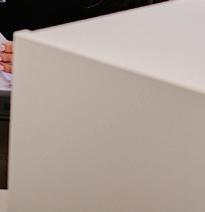
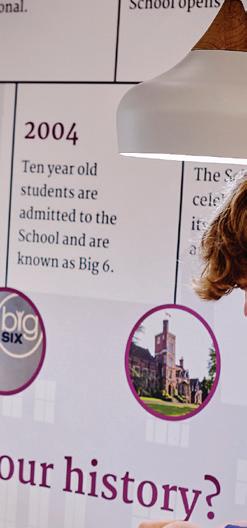

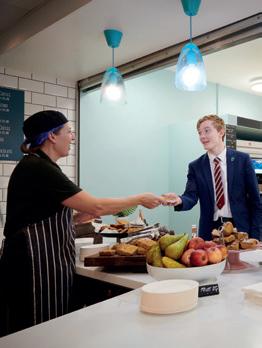




”I’ve found joining WGS really great; the teachers are excellent, and the students are very welcoming, often inviting you to join clubs with them. My favourite part of Sixth Form is the library, as it’s one of the only quiet places in school where studying is encouraged.
Overall, my favourite thing about WGS is the food,it’s consistently good, especially the break-time snacks, and the paninis at lunch are a highlight. My favourite lesson is IT because it’s a nice change of pace with more coursework, and the teachers are really insightful.”





































DAVID OSUMADIAMEN
OW, 2024



When working towards my future career, I had regular 1:1 advice and guidance from the in-house careers adviser (she is also a fellow geographer), as well as 1:1 support from the Sixth Form team and my form tutor, especially when it came to making my UCAS application. I have also made use of the careers literature available in the careers hub, having read ‘Our Life, Our Planet’ by David Attenborough, among others.








Geography related placements. My first placement was at Atkins Global, which I completed during activities week in Lower Sixth. Atkins Global is a world leading design, engineering and project management organisation, where I was immersed in exploring the various departments of the organisation. My favourite department was land planning because it was fascinating to see how they surveyed the Birmingham area to plan the new route for the tram system.

Using the Careers Departments’ work experience bank, I completed two
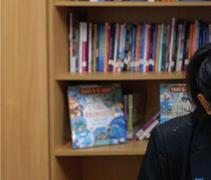
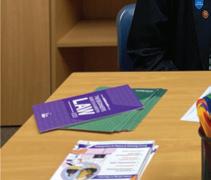



My second work experience was at Balfour Beatty Living places, which I completed during October Half term. This company specialises in Highways maintenance, street lighting and

public realms services. I shadowed different teams within the company, both in the office and off site. I also completed the Bronze Industrial Cadets Award at this placement. This involved writing a 1500-word presentation on the flood defences at Ironbridge- one of the sites that Balfour Beatty are responsible for.




All of the careers support I had was incredibly helpful in giving me an insight into the working world. It also enabled me to delve further in to my favourite subject, by being able to experience it in the real world.



I now study the BA (Hons) Geography at Cambridge University.

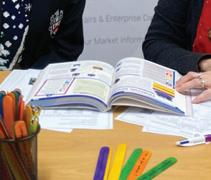



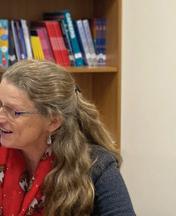
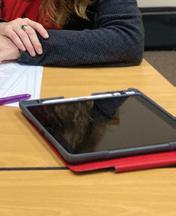
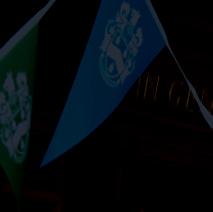
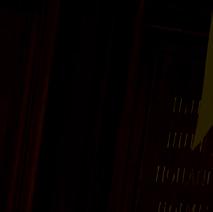
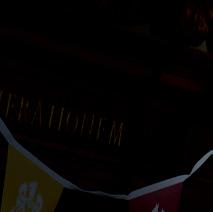
Entering Sixth Form is another big step in your educational journey and you may need some support to help you settle, particularly if you are joining from another school. Rest assured, there is plenty on offer to make the transition to our upper years seamless. The Sixth Form team are based within the Sixth Form Centre and are always on hand.
In addition, Sixth Formers have dedicated tutors who they see twice a day – their primary responsibility is to care for their tutees; to provide support and guidance and build positive, strong relationships within the tutor group.
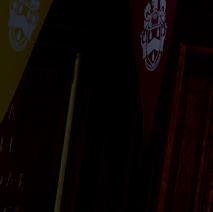
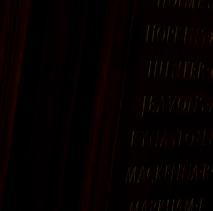
The House system which is at the centre of school life further enhances our outstanding pastoral care, enabling students to build relationships across year-groups. The House system spans Years 8 to Upper Sixth and by doing so, encourages reciprocal opportunities for leadership, mentoring advice and support between students of different ages. The tutor group becomes part of a larger House family made up of Heads of House, House tutors, staff and students.
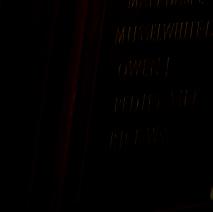
From time to time Sixth Formers may meet with Mrs Abbi, School Counsellor for one-to-one appointments or for exam drop-in sessions and other workshops. Mrs Keeley, Head of Wellbeing, also arranges guest speakers and covers topics within the Wellbeing curriculum that help students with wider issues such as healthy eating, mental health, first aid, personal safety, personal finance and interview techniques to name but a few. This helps with building life skills alongside academic study and builds self-confidence and self-esteem.
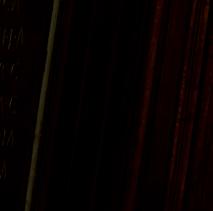
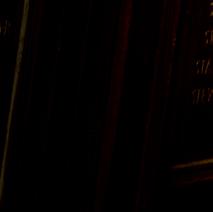
“It has been an absolute privilege to be part of your school community. It has also been one of our very best investments. With the real hope that George can now realise his dream of getting to university to study Architecture the combined effort and involvement of all parties must be applauded. Please keep up the most amazing work within your OpAL Department to allow children like George to become the very best version of themselves.”
MR AND MRS ATKINSON WGS PARENTS 2022






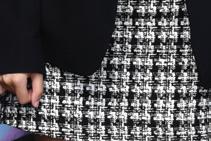




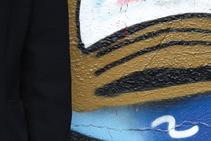





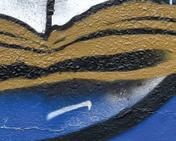

At Wolverhampton Grammar School
we place the Wellbeing of our students at the heart of everything we do. We know that happy, well prepared and supported students will achieve their potential academically. This ethos runs through our Sixth Form with weekly dedicated lessons with specialist teachers dedicated to Wellbeing.
Our Wellbeing Curriculum incorporates the statutory subjects of PSHE and RSE, helping students to develop the knowledge, skills and attributes that they will need to help them thrive. From making responsible decisions about alcohol to succeeding in their first job, Wellbeing helps students to manage many of the most critical opportunities, challenges and responsibilities they will face throughout their lives.
Wellbeing is a flexible broad-based curriculum which can adapt to world events and developments such as online dangers. At its heart Wellbeing encompasses fundamental British values and has due regard to the nine protected characteristics of the 2010 Equality Act. We are proud to be a diverse community and celebrate this in our ethos and school life.
We encourage our students to receive their ‘Wellbeing Five a Day’

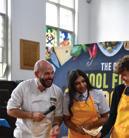




The three themes of Health and Wellbeing, Relationships, and Living in the Wider World will be covered, one per term.
Topics include: Addiction, relaxation techniques, body image, routes to parenthood, critical thinking, positive teenage relationships, online safety, understanding pay slips and employment rights.
Guest Speakers include: Street First Aid with St. John’s Ambulance and Body Image with First Steps. We are also regularly joined by visiting theatre companies on social issues.
The same three themes of Health and Wellbeing, Relationships, and Living in the Wider World will be covered, one per term but with differing topics.
Topics include: Drug and alcohol awareness, understanding teenage relationships, resilience, social media addiction, diversity, safety when travelling abroad and personal finance including understanding tax and mortgages.
Guest Speakers include: Healthy cooking on a budget with Ready Steady Cook, and Financial Wellbeing talks.





















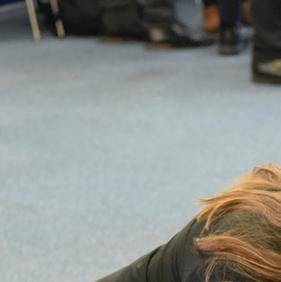
of students strongly agree/agree that WGS supports good mental health
“Pupils are taught to effectively use a variety of strategies to support and develop their mental wellbeing and stress management. Staff use assemblies to highlight the support available and provide organised events to promote mental wellbeing discussion.”
ISI INSPECTION – APRIL 2024
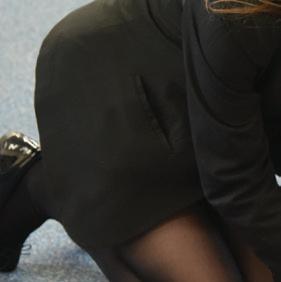




We are proud to have been shortlisted for the Pupil Mental Health Initiative of the Year at the 2025 Tes Awards.

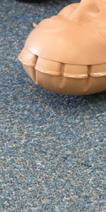













We have created a proactive and inclusive culture through the work of two dedicated groups of student leaders. Our 32 Student Mental Health Champions, aged 11–18, play a pivotal role in raising awareness, reducing stigma, and providing support for mental wellbeing across the school.
Our Diversity Champions have also made an outstanding impact. They were shortlisted for the National Diversity Awards, making us the only school to be recognised. These students plan activities and events that celebrate and acknowledge the nine protected characteristics explored in our Wellbeing lessons.







“Joining WGS Sixth Form has been such an amazing experience. The small class sizes make lessons more focused, and the teachers are always supportive and approachable, which made it easy to settle in, make new friends, and feel part of the community. My favourite thing about Sixth Form is the huge
range of opportunities, both academic and social — from MedSoc, charity events and student voice to pudding lectures and leadership roles — and I really enjoy how the two years mix, as it makes the whole community feel close. More widely, the best thing about WGS as a whole is the strong sense of community. I’ve been here since Year 7 and have made amazing friends, always feeling supported in such a positive atmosphere with house events,
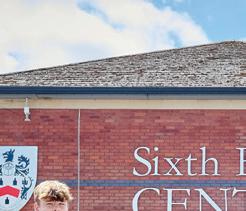

leadership opportunities, and even the day-to-day life (plus the food is genuinely delicious!). It’s hard to choose a favourite subject, but for my future aspirations I’d say Biology and Chemistry, as both are taught in small, engaging classes where you get lots of individual support. I enjoy how interactive the lessons are, and they’ve given me a strong foundation for my goal of studying Medicine in the future.”
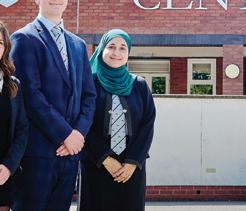

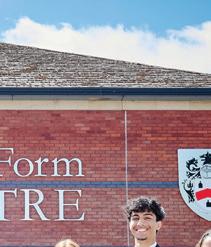
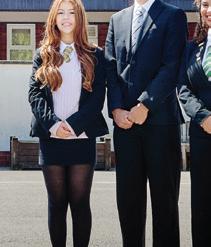
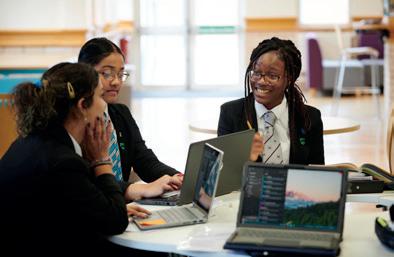
After Registration at 8.50am, your day might begin with an assembly, a meeting with your House Tutor group, a wellbeing session or a House meeting.
Lessons are taught in the Sixth Form Centre or subject-specific areas such as the Science laboratories, Hutton Theatre, Art Studio, Computer suite or Design and Technology block.
The Sixth Form Café is a lovely space to meet and relax with friends or mingle with staff and the Sixth Form team. Coffee and snacks are served at breaktime as well as lunch later in the day. We encourage you to take part in lunch time clubs or even start your own club!
Lessons end at 4pm and after-school life begins. Again there is a whole host of extra-curricular offerings as well as opportunities to help in the Junior School, assist with reading clubs, volunteer in the Jenyns Library, take part in coaching and training or to run clubs for younger students such as Maths Enrichment.
“Study periods can be spent in the Common Room for collaborative study.”

Sixth Formers are not required to wear school uniform but they are expected to dress smartly in professional business attire such as a suit or a jacket and skirt or trousers. Every student wears a tie in the colour of their House. Prefect and Colours ties denote students with positions of responsibility or those who have been recognised for a sporting achievement.
Lower Sixth students stay in school and get involved fully in school life but they benefit from private study periods and will have study leave and more flexibility during the exam season. The Upper Sixth have further freedom to go off-site at lunch time or, with parental permission, may work from home in the afternoons if they have study periods. Our Sixth Formers really value their own dedicated space and greater independence.
“Every Wednesday, Sixth Formers enjoy an afternoon of Games.”
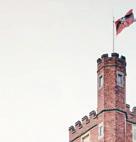
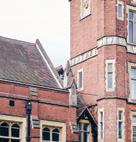

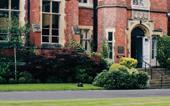

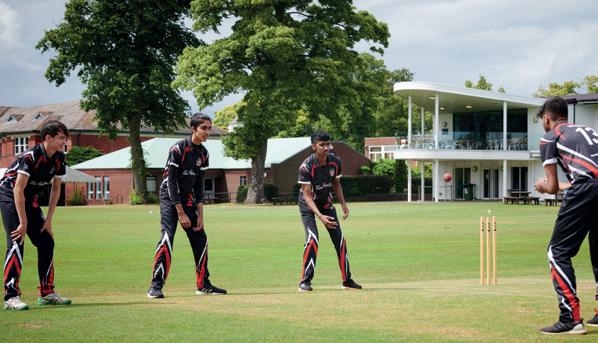
Sixth Form is not all about study! Students are involved in many clubs and subject based societies including Politics Club, Graphic Design, Digital Leaders, Green Power Project, TableTop Gaming, Student Voice and many more. Lunchtime Pudding Lectures are another tenet of Sixth Form life and give students the opportunity to present and take questions on a variety of topics beyond their Sixth Form studies. Aptly named, there is always cake served for those attending and presenting!
WGS Thinktank is a new enrichment programme which recognises students’ skills in the three areas of Academics, Leadership and Philanthropy. It is expected that you will start on your bronze award in the Lower Sixth and the Silver award target completion date
would be the end of the Autumn term of Upper Sixth. Students have the option to progress to gold and complete this before the end their time in Sixth Form.
For those that enjoy a chance to shine on stage we run a Senior School Production each year in our 200 seater Hutton Theatre. This is always a sell-out performance and of a very high standard.
There are also opportunities to step up into Prefect leadership roles such as House Captains and Heads of School. Within the House system Sixth Formers act as mentors to younger students and take part in charity fundraising and community activities.
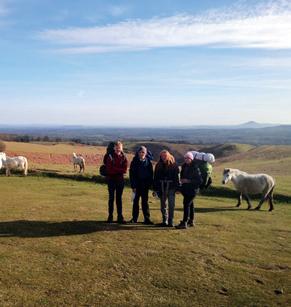
Sport, Music, volunteering and the Duke of Edinburgh’s Award are all accessible to our Sixth Formers. We also have our own student-run newspaper called The Wulf
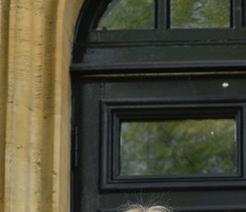
“In the Sixth Form you are encouraged to take on greater roles and responsibilities.”
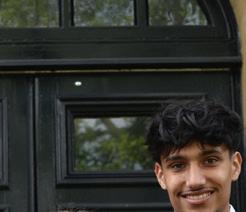
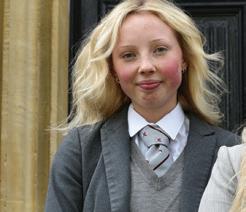
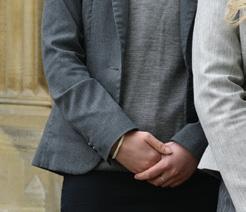
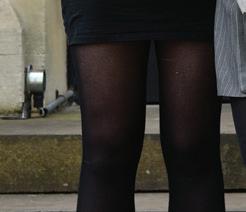
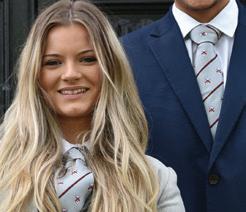

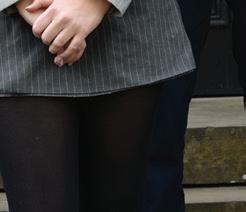


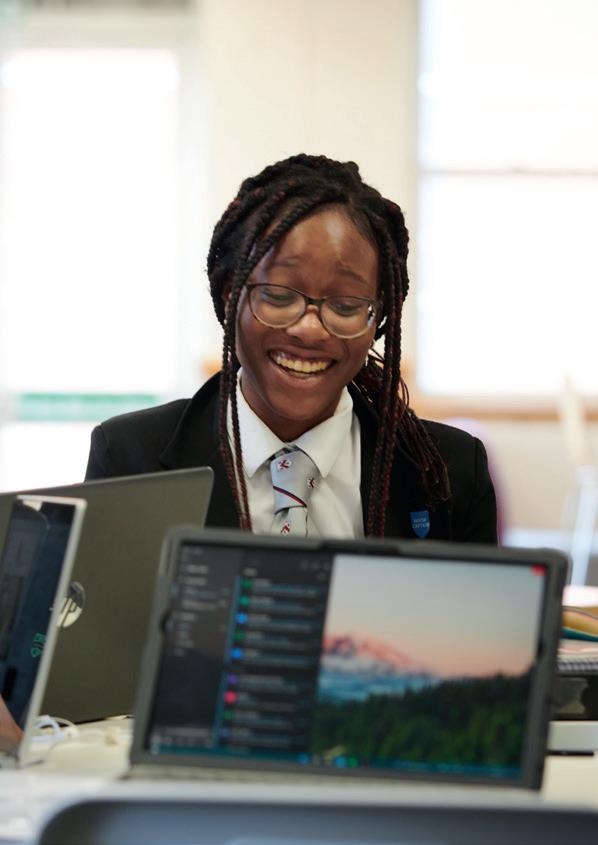
Students at Wolverhampton Grammar School can study a diverse array of courses which include traditional A Level subjects, specialised subjects such as Psychology, Economics as well as the Cambridge Technical in Sport and Physical Education or Information Technology. Many Lower Sixth students also choose the option to take the Extended Project Qualification to boost their university application. Please read on for more detailed information about all the courses offered at WGS Sixth Form.
One of the main requirements for success at A Level is an interest in the subject. Attaining the highest grades possible will give you the widest options for university courses. We recommend you talk ideas through with our Sixth Form team and Heads of Department. We also have a full-time dedicated Head of Careers, Ms. Sohal, and Careers Adviser Mrs Hind who works closely with her.
We offer work clinics to support our students to achieve their full potential.
In addition to their A Level and Cambridge Technical qualifications listed on the following pages, many Lower Sixth students also choose to take the EPQ. The EPQ is a self-directed research project and as a standalone qualification it is worth up to 28 UCAS points. It is a good way to increase points for university applications and some will also make it part of a formal offer, often involving lower grades.
You will choose a subject of your own choice – the topic may complement one of your A Level subjects but the research must be original and look



beyond the core curriculum. It is a chance for you to investigate a topic that fascinates you and develop and demonstrate your project management skills.
All students undertaking the EPQ at WGS are taught how to approach the project as well as being allocated a supervisor to support them in addition to the research support offered by the dedicated Sixth Form Library.
“I’ve been at WGS for over eight years, and Sixth Form is definitely a very different experience. One of my favourite things about Sixth Form at WGS is the Sixth Form library — it’s a great environment to focus and get work done, especially while listening to music. I also really value the freedom we’re given during study periods, which allows me to manage my own time and work independently. Overall, what I love most about WGS is the subject teachers because they’re incredibly supportive and helpful, but also approachable and easy to talk to about anything. I also love how many opportunities the school provides, whether that’s through work experience placements or clubs such as Charity club, Mental Health club, Diversity and Pudding Lectures. I’ve chosen to study A-levels in Chemistry, Biology, and Art, as I hope to pursue a career in medicine — although I genuinely can’t decide which subject is my favourite, as they’re all so different and enjoyable in their own ways!

As an Art student at Wolverhampton Grammar School, you will have the opportunity to study in our purpose-built facilities which include the professional Viner Art Gallery and Sixth Form Studio. You will benefit from an extensive range of studio workrooms and classrooms, high spec PC’s and other creative resources including DSLR cameras.
The Art and Design Department aims to encourage your understanding of the power of the image and to foster skills and creativity in a variety of media. You will learn traditional techniques such as oil painting and print-making, as well as chemical photography and new technologies including digital photography and film-making, all based on a strong foundation of drawing
At Wolverhampton Grammar School we prepare you for careers in an ever changing world and training in the arts promotes creative and critical thinking, collaboration, communication, social confidence and cultural sensitivity. Graduates of arts disciplines are highly employable but art is about more than that – it is about identity, empathy, personal expression and freedom of thought; all these things we cherish in the Art Department.
• Oil Painting
• Digital Photography
• Chemical Photography
• Mixed Media techniques
• Printmaking
Students must fulfil the entry requirements of Wolverhampton Grammar Sixth Form and expect to achieve a minimum Grade 6 in an art discipline at GCSE/IGCSE (for example, Textiles or Photography). Ideally students will have studied Art and Design or Fine Art at GCSE/ IGCSE, although this is not essential. The department has a high-profile exhibition programme and students would be expected to be actively involved in the extra-curricular events on offer. We would also expect a wider interest in the subject, evidenced through visits to galleries.
Component 01: Personal investigation (120 marks, 60% of A Level)
Learners should produce two elements:
(i) a portfolio of practical work showing their personal response to either a starting point, brief, scenario or stimulus.
(ii) a related study: an extended response of 3,000 words.
Component 02: Externally set task (80 marks, 40% of A Level) 15 hours
The early release paper will be issued in February during the Upper Sixth year, providing learners with a number of themes, each with a range of written and visual starting points, briefs and stimuli.


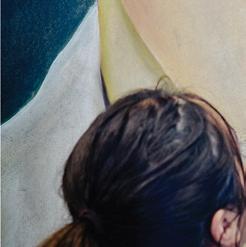
Students can take part in the national ARTiculate competition, join the creative Viner Society, and receive extra art support to enhance their portfolios and artistic development.





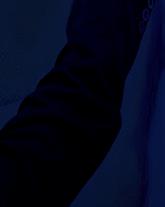

A number of students each year choose courses in architecture, design, fashion and Fine Art at university and past alumni have gone on to study at some of the most prestigious schools of art around the country. The UK has an estimated 2.29 million creative industries jobs which account for 6.9% of all UK jobs.


At Wolverhampton Grammar School
you will be taught by expert staff in purpose-built Biology laboratories with a dedicated prep room providing access to a real sized human body model, model organs, microscopes, slides of tissues, preserved specimens, a human skeleton and other animal bones as well as practical equipment for microbiology, choice chambers and dissection. You will also be introduced to our muchloved animals including a Royal Python called Monty and hissing cockroaches. Students will be inspired to consider further study or related careers such as physiotherapy and veterinary science.
There are a number of extra and co-curricular activities including Med-Club, which provide the perfect opportunity to develop leadership and mentoring skills. Students also complete an external competition based essay fostering independent research which sparks curiosity beyond that of the specification.
COURSE COMPONENTS
• Biological molecules
• Cells
• Organisms exchange substances with their environment
• Genetic information, variation and relationships between organisms
• Energy transfer in and between organisms
• Organisms respond to changes in their internal and external environments
• Genetics, populations, evolution and ecosystems
• The control of gene expression
Opportunities include the Warwick Group Essay Competition, involvement in MedSoc, and Biology Drop-In sessions for extension learning and university preparation.
Students must fulfil the entry requirements of Wolverhampton Grammar Sixth Form and are expected to achieve a minimum Grade 7 Biology at GCSE/IGCSE (if Additional Science then 77 is required). Attaining a minimum Grade 6 in Chemistry and Maths would also be advantageous.
A Level Paper 1
Topics 1 - 4
2 hours
35% weighting
A Level Paper 2
Topics 5 - 8
2 hours
35% weighting
A Level Paper 3
Topics 1 - 8
2 hours
30% weighting
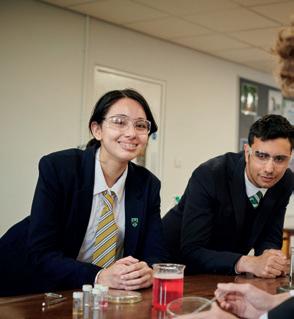
Biology is one of the STEM (science, technology, engineering and maths) subjects and is highly regarded by universities and employers alike. Biology opens the door to a wide range of careers and interests including: healthcare and medicine; biomedical science; animal health; conservation; nursing; zoology and veterinary science oceanography; pharmaceuticals; teaching and research.
Most medical and veterinary courses require A Level Biology and a number of Biology graduates from School are now enjoying successful careers in the UK and overseas. Biology
Non Exam Assessment – practical endorsement
Practical activities to demonstrate competence
Reported separately Pass/Fail
A Level sits well with subjects such as Chemistry, Geography and Mathematics as well as being of interest to students studying Physical Education (PE). It will also suit students who wish to take Biology as their only science choice as well as those wanting to study it in addition to other science subjects.
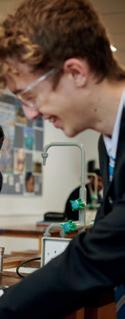
“Discover how organisations succeed in a competitive world.”
A level Business explores how organisations are created, managed, and grown in competitive environments. Students examine key themes such as marketing, finance, operations, strategy, and human resources, while also considering the ethical and environmental challenges businesses face. The subject develops transferable skills in analysis, evaluation, and decision-making that are valued by universities and employers alike.
Small group sizes at Wolverhampton Grammar School allows us to personalise students’ learning experiences and students are encouraged to involve themselves in discussion and debate.
Students must fulfil the entry requirements of Wolverhampton Grammar Sixth Form and are expected to achieve a minimum Grade 6 in GCSE/IGCSE Business and/or Economics. If neither of these subjects have been studied before, a minimum Grade 6 in Mathematics and English is required.
Students gain real-world experience through the Business Studies Immersion Day, offering insight into enterprise, leadership, and careers in business.
Two themed papers with one final synoptic paper with pre-released context. Each paper will be 2 hours. Each paper will have 100 marks.
Paper 1
Marketing, people and global Business
35% weighting
Paper 2
Business activities, decisions and strategy
35% weighting
Paper 3
Investigating business in a competitive environment
30% weighting
• Year 1: Theme 1 (Marketing and people); Theme 2 (Managing business activities)
• Year 2: Theme 3 (Business decisions and strategy); Theme 4 (Global business)
Business develops decisionmaking, problem-solving, and analytical skills by applying theory to real organisations. Students gain confidence in interpreting financial data, evaluating strategies, and understanding how people and organisations work. Strong communication, teamwork, and leadership skills prepare students for a wide range of future pathways.
Business A level provides a strong foundation for further study in business, management, marketing, law, economics, and related fields, and leads to diverse career opportunities in areas such as finance, entrepreneurship, consultancy, and international business.
A Level Chemistry is a popular choice at Wolverhampton Grammar School. It suits students who are logical, methodical and who like patterns. Equally it suits students who like practical work, and who like proving ideas and theories through real experience and empirical research.
Chemistry is very much a practical subject at Wolverhampton Grammar School and the department aims to challenge and motivate students using laboratory work as much as possible. Purpose built laboratories and dedicated Technician staff along with expert teachers ensure you have all the facilities and expertise required to make the most of this fascinating subject.
Chemistry A Level naturally fits closely with Biology, Physics and Mathematics. It also sits well with Geography, Computing, Psychology and others.
COURSE COMPONENTS
• Atomic Structure
• Bonding
• Oxidation, Reduction and Redox Equations
• Inorganic Chemistry
• Amounts of Substance
• Energetics
• Equilibrium
• Acids and Bases
• Transition Metals
• Organic Chemistry
• Kinetics
• Modern Analytical Techniques
Students must fulfil the entry requirements of Wolverhampton Grammar Sixth Form and are expected to achieve a minimum Grade 7 Chemistry at GCSE/IGCSE or if Additional Science then Grade 77 is required. A minimum Grade 7 in Maths is strongly advised.
Paper 1
Inorganic and Physical Chemistry
2 hours - 35% of A Level
Paper 2
Organic and Physical Chemistry
2 hours - 35% of A Level
Paper 3
All content from Organic, Inorganic and Physical Chemistry
2 hours - 30% of A Level
Chemistry students from Wolverhampton Grammar School have gone on to a wide range of careers and HE courses, including Pharmacy, Chemical Engineering, Healthcare and Forensic Science, Pharmacology and Toxicology.
You must have A Level Chemistry if you want to become a doctor or a vet and a number of Chemistry graduates from School are now enjoying successful careers in the UK and overseas.

From competing in the Chemistry Olympiad to visiting Keele University and tackling an Escape Room Challenge, chemistry students enjoy engaging learning and talks from external experts.
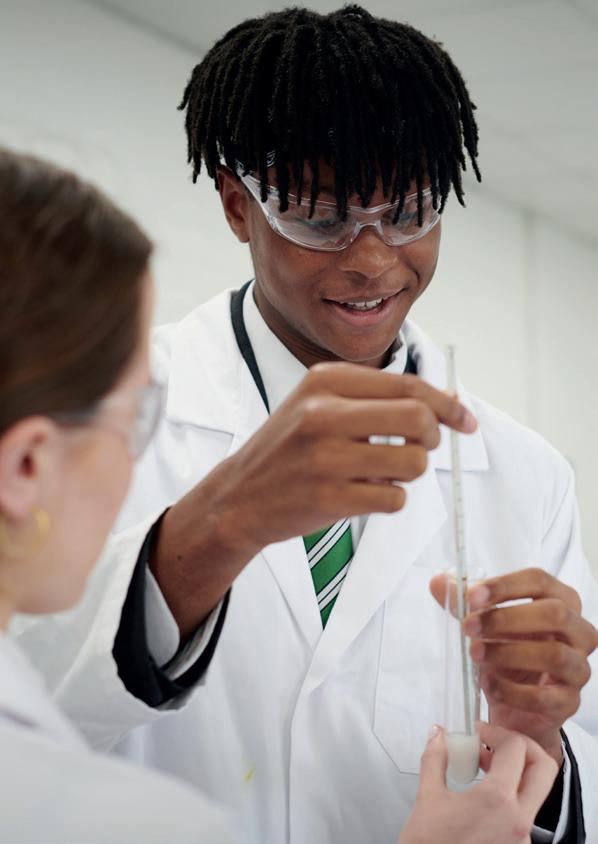
Results
77%
A* - B from 2023-2025
This creative and thought-provoking qualification gives students the practical skills, theoretical knowledge and confidence to succeed in a number of careers, especially those in the creative industries. You will investigate historical, social, cultural, environmental and economic influences on design and technology, whilst enjoying opportunities to put your learning into practice by producing products of your choice. You will gain a real understanding of what it means to be a designer, alongside the knowledge and skills sought by higher education and employers.
You will study in our Design Studio, CAD/CAM Modelling Suite and Workshop, all housed within a purpose-built block. We use the latest
Theory: 50%. Core technical principles, core designing and making principles, and specialist knowledge, technical, and designing and making principles through:
• Materials and their applications
• The requirements for product design, development and manufacture
• Design communication, digital design and manufacture, design processes and critical analysis
• Efficient use of materials and feasibility studies
• Health and Safety
• Design for manufacturing, maintenance and repair
• Enterprise and marketing in the development of products
technology to ensure students are able to explore their design ideas to the full. You will have plentiful opportunities to visit exhibitions, manufacturers and leading universities including the Big Bang Fair and EES Residential at the University of Birmingham. Students are encouraged to enter national and local design competitions such as the Triumph Design Awards and to become engaged in design and technology through extra-curricular activities and clubs including running STEM and participating in the Greenpower Project.
A number of students, with support from the department, have been awarded the prestigious Arkwright Scholarship. This national award supports Year 11 students through
• Protecting designs and intellectual property
• Design theory, methods and processes
• How technology and cultural changes impact the work of Designers
• Selecting appropriate tools, techniques and processes to enable accuracy in design and manufacture
• How to evaluate products, taking into account the views of potential users
• Responsible design
• Approaches to Project Management and national and international standards in product design
Results
A*-B in 2025
A LEVEL (AQA)
their A Levels to encourage them to pursue Engineering or Technical Design at university or through a higher-level apprenticeship, and to take up careers in the field. Successful students are linked with engineering companies who provide mentoring throughout their A Level course.
• Performance characteristics and working properties of materials, adhesives and fixings, surface finishes and coatings
• Industrial and commercial practice, including forming, redistribution and addition processes
• Modern manufacturing systems
Coursework: 50%. Practical application of technical principles, designing and making principles and specialist knowledge.
Students must fulfil the entry requirements of Wolverhampton Grammar Sixth Form. Ideally you will have studied Design & Technology at GCSE, but it is not essential. If you have not studied D&T, it is advisable to have a least a Grade 6 in Art GCSE/IGCSE.
Additionally, Maths GCSE at Grade 6 or above is highly desirable as a small element of the A Level qualification will require you to use some basic Maths in a contextual setting.
Paper 1
Technical principles, Designing and Making principles and Specialist knowledge
2 hours 30 minutes written paper
120 marks, 30% of A Level
Short and extended responses
Paper 2
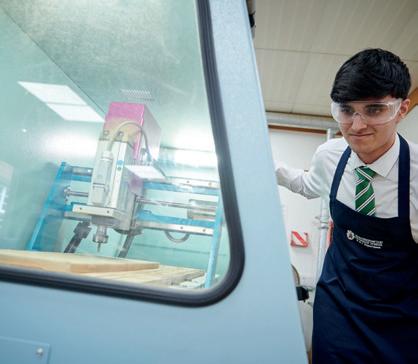
DT students can apply for the prestigious Arkwright Scholarship, enter the Merchant Taylors’ Design Competition, and benefit from dedicated extra curricular clubs for coursework and maths support.
Studying Design & Technology
Product Analysis and Commercial Manufacture
1 hour 30 minutes written paper
80 marks, 20% of A Level
Section A Product Analysis
30 marks. Up to 6 short answer questions based on visuals.
Section B Commercial Manufacture
50 marks. Short and extended responses.
Non Examined Assessment (Coursework) exploration
Designing, making, analysis and evaluation
Approximately 40 hours
100 marks, 50% of A Level
Product Design provides the foundation for entrance into a wide variety of higher education courses and careers including Architecture, Engineering (in all its guises) and a range of Design based courses.
Engineering Education students attain certificates from EES, Gold Industrial Cadets Gold Award and a Gold Crest Award.
Students in previous years have gone on to study degrees such as Automotive Design; Mechanical Engineering, Architecture, and Civil Engineering. They frequently come back to school to share their experiences with current students.
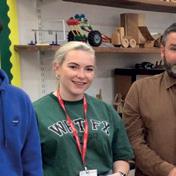
Anna joined WGS in Year 9 from St Peter’s Collegiate School and studied Art, Design & Technology and Maths A Level. She was awarded an Arkwright Engineering Scholarship and is in her final year studying Product Design and Manufacture with an Industrial Placement Year at the University of Nottingham.
“Understand the forces that shape our world.”
Economics is the study of how individuals, businesses, and governments make decisions in a world of limited resources. At A level, it encourages students to think critically about real-world issues such as globalisation, inequality, sustainability, and government policy. The subject builds analytical, numerical, and evaluative skills that are highly regarded by universities and employers.
The Economics Department at WGS offers you the chance to participate in nationwide essay competitions such as those with John Locke Institute and Cambridge Society. Student participation in discussion and debate is actively encouraged.
Students must fulfil the entry requirements of Wolverhampton Grammar Sixth Form and are expected to achieve a minimum Grade 6 in GCSE/IGCSE Business or Economics.
If neither of these subjects have been studied before, a minimum Grade 6 in Mathematics and English is required.
Theme 1: Introduction to markets and market failure
Theme 2: The UK economyperformance and policies
Theme 3: Business behaviour and the labour market
Theme 4: A global perspective
Paper 1: Markets and business behaviour (35%) 2 hours
Paper 2: The national and global economy (35%) 2 hours
Paper 3: Microeconomics and Macroeconomics (30%) 2 hours
Students explore global markets and current affairs through debates, research projects, and wider reading designed to deepen understanding beyond the classroom.
A*-B in 2025

Laurence studied Business Studies, Geography and Psychology A Level and is in his final year studying International Business, Finance and Economics at Manchester University. He is currently growing his own social media marketing and management agency, whilst considering a career in sales or marketing to further hone his skills.
Laurence says: “WGS has been invaluable to my personal development and growth. Without the high quality of teaching and the values, principles and discipline that the School instils in you, there is no doubt in my mind I wouldn’t be where I am today.”

WHAT NEXT?

Economics develops analytical thinking, problem-solving, and numeracy through interpreting data, graphs, and real-world issues. Students learn to evaluate policies, build evidence-based arguments, and communicate ideas clearly in essays and discussions. These skills are highly transferable and valued by universities and employers.
An A level in Economics provides an excellent foundation for further study in economics, business, finance, politics, law, and international relations, and can lead to a wide range of career opportunities in both the private and public sectors.

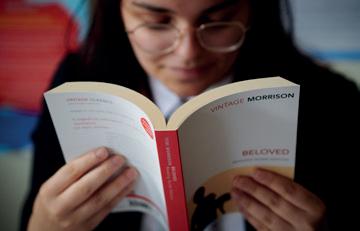
English Language is an exciting subject which allows you to study the different ways language works in the real world, as well as the key issues and factors behind its interpretation and production. The course focuses as much on the spoken word as more traditional written texts and you will become as skilled in the analysis of transcriptions as those of which you are more familiar.
You will be able to build on the analytical skills acquired at GCSE and will learn how children acquire language, the reasons behind the effectiveness of media and multimodal texts like web pages, television and adverts, as well as how history, culture and identity affect how we use and react to language.
This subject would complement any other at A Level. It fits particularly well with Psychology and History. Its analytical nature means it would also suit students who are more scientifically minded and are interested in the fundamentals of language that we use every day. English Language A Level offers flexibility in terms of what you decide to study for coursework options enabling you to focus on the topics which particularly interest you.
Students must fulfil the entry requirements of Wolverhampton Grammar Sixth Form and are expected to achieve a minimum Grade 6 In English Language GCSE/IGCSE.
Exploring Language (01)
80 marks, 2 hours 30 minutes written paper
40% of total A Level
Dimensions of Linguistic Variation (02)
80 marks, 2 hours 30 minutes written paper
40% of total A Level
Independent Language Research (03)
40 marks, non-examined assessment
20% of total A Level
Opportunities include the EMC Language Conference, BBC Young Reporter, and visits from linguistics lecturers. Students can also join The Culture Club or attend the Creative Writing Explore Day.
English is key for any job that involves communication, writing and/or linguistic knowledge. These include: advertising and marketing, writing and journalism, law, consultancy, business, teaching, performing arts, academia, government, linguistics, foreign languages, media and design. You could even be a freelance writer!
Former students have gone on to work in journalism, law, scientific research and theatre design; it is a truly flexible A Level which opens up many different pathways.
Careers in the sciences, engineering, technology and maths also need more English than you think. Writing proposals, academic papers and articles, and communicating with others is key to obtaining funding for projects and reaching people with your work.
• Linguistic analysis of authentic texts
• Original writing for a real-world purpose on a topical language issue
• Analysis of how children acquire language
• Language in the media
• How language changes over time
• An investigation into an area of each learner’s particular individual interest
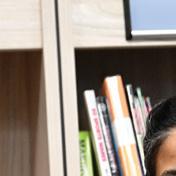
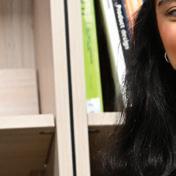
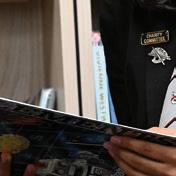
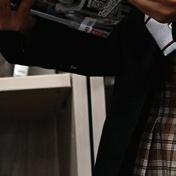

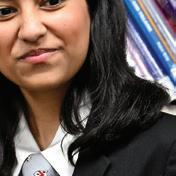


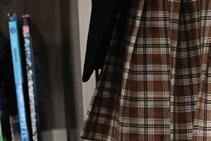


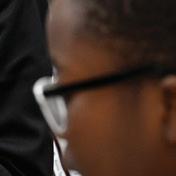
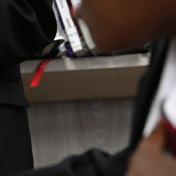




English Literature is not only for those who already enjoy and want to further their reading; it is also for those who want to delve into deeper knowledge and thinking. English Literature allows you to explore the frameworks of narrative, structure, language, and form – but you will also explore subjects as diverse as love, loss, ambition, hatred, fear, sex, childhood, politics, greed, and gender – in fact, all of human life!
At GCSE you often read texts in isolation, whereas at A Level you will be encouraged to make connections between texts that were written many years apart. You will also be encouraged to make telling connections between our texts and their historical, social, and cultural contexts. As such, a love of history, culture, and politics is a useful trait for this course. You will explore how various writers (and artists) have revolutionised our way of looking at the world; the onus is very much on you to then generate and foster new critical perspectives – perfect preparation for university and your career ahead.
The English Department utilises the Hutton Theatre and the Jenyns and Sixth Form Libraries. Students will have the opportunity to attend theatre trips, cultural visits, and academic lectures. The department also supports the production of plays throughout the school and would encourage our A Level students to get involved, extending and deepening their understanding of drama and language.
Students must fulfil the entry requirements of Wolverhampton Grammar Sixth Form and achieve a minimum Grade 6 in English Language and English Literature GCSE/IGCSE.
Component 01: Drama
Written Paper (30% of the A Level)
Open Book - 2 hours 15 minutes
Component 02: Prose
Written Paper (20% of the A Level)
Open Book - 1 hour 15 minutes
Component 03: Poetry
Written Paper (30% of the A Level)
Open Book - 2 hours 15 minutes
Component 04: Coursework
One extended comparative essay (20% of the A Level)
2500-3000 words
After two years’ study, you will be able to read with forensic attention to detail and be able to explore the psychological and emotional subtleties of texts. You will be able to write well and think sharply: probably the most important skills any employer will want.
Studying English Literature helps to hone your analytical skills and can be employed in a variety of careers from event management to genome sequencing, from horticulture to writing a political manifesto. Former English Literature students have
Component 01: Drama
• Study of one Shakespeare play and one other play from the theatrical canon
• Study of related critical anthology on the genres of tragedy and/or comedy
Component 02: Prose
• Comparative study of two ground-breaking novels linked by theme
• Themes include ‘Women and Society’, ‘The Supernatural’, ‘Childhood’, and ‘Science and Society’
Component 03: Poetry
• Study of an anthology of cutting-edge post-2000 poetry alongside unseen poetry
• Study of a named poet or poetic movement from the canon
• Poets include Chaucer, Donne, Keats, Rossetti, TS Eliot, and Philip Larkin
Component 04: Coursework
• Study of two linked texts from any genre
• Free choice of texts for teachers and students
recently gone on to study at Oxford, Cambridge, and Russell Group universities with great success, studying a range of courses including English, Education, French, and Experimental Psychology. Many have moved into related careers including teaching, theatre, journalism, law, and professional writing.



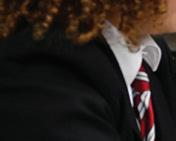


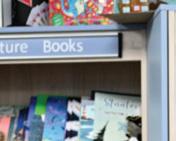


With theatre trips, the Solihull Shakespeare Festival, and visiting university lecturers, students experience literature in action, complemented by clubs including Discover Reading Project and the Gothic Explore Day at BCU.
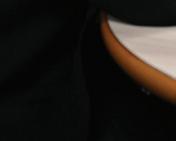
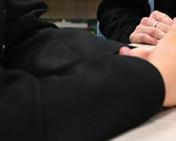
Results 71% A*-B average from 2023 - 2025
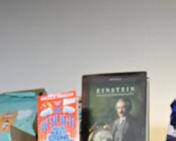
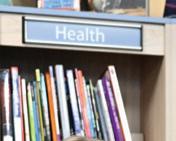
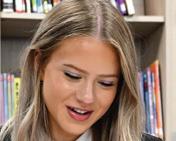

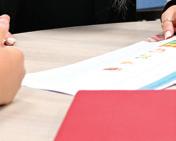
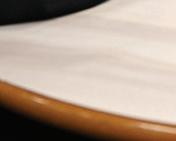





Results
74%
A*-B average from 2023 - 2025
Students can take part in a cultural exchange with Lycée St-Françoisd’Assise in France, attend the Festival of Languages, and receive 1:1 lessons with native speakers.
Languages is a thriving discipline at Wolverhampton Grammar School and the Modern Languages department has a history of organising successful educational visits and exchange programmes including a Sixth Form trip to our partner school in Savenay. French is the second most widely learned language after English. It has over 300 million speakers worldwide and is the only language, alongside English, spoken on all continents; thus making it a major language in international communication and much sought after by universities and employers.
A friendly, welcoming atmosphere provided by teachers can always be found in the dedicated Modern Languages Department in School, with additional resources available online and in the library. A native French language assistant offers weekly individual conversation classes. A range of extra-curricular clubs and societies is available to students including Literature and Film Clubs, which can be tailored to students’ individual interests.
Students must fulfil the entry requirements of Wolverhampton Grammar Sixth Form and achieve a minimum Grade 6 in French at GCSE/IGCSE.
Any modern language fits well with traditional arts subjects but given the economic importance of this language there is a great advantage to speaking confidently if you are considering a more scientific or industry tailored portfolio of subjects or career. Studying more than one modern language can also be greatly beneficial and students can also take German A Level at WGS.
Unit 1: Speaking
a) Presentation and discussion of Research Project
b) Discussion based on stimulus card
21-23 minutes - 30% of A Level
Unit 2: Listening, Reading and Translation
2 hours, 30 minutes - 50% of A Level
Unit 3: Critical and Analytical Response in Writing
2 hours - 20% of A Level
Students will practise speaking, listening, reading and writing by studying contemporary and classic literature and films, current affairs and socio-historical and cultural issues. They will also conduct their own research project on a subject of their choosing. Typical topics include:
• Families and citizenship
• Youth trends and personal identity
• Education and employment opportunities
• Regional culture and heritage
• Media, art, film and music
• Migration and integration
• Cultural enrichment and celebrating difference
• June 1940 - May 1945: life in occupied France
• 1945 - 1950: rebuilding post war France
French is the language of one of the most powerful economic and culturally significant nations and its influence extends worldwide with French speaking populations in the Caribbean, Africa and even the farthest shores of the Pacific Islands.
The ability to speak both French and English is an advantage for finding a job with the many multinational companies using French as their working language, in a wide range of sectors (retailing, automotive, luxury goods, aeronautics, etc.). French is both a working language and an official language of the United Nations; the European Union; UNESCO; NATO; the International Olympic Committee; the International Red Cross and international courts. Proficiency in French is essential for anyone considering a career in any international organisation.
Knowledge of French also gives you an incredible insight into one of the world’s greatest cultures, both in the arts and socially. France is widely recognised as a world leader in gastronomy, architecture and product design. Lots of opportunities then for international employment in a whole range of industries and sectors. Former students of Wolverhampton Grammar School have gone on to study one or more languages, including as part of a combined honours degree, at degree level.
With growing interest in issues such as climate change, migration, environmental degradation and social cohesion, Geography is one of the most relevant courses you could choose to study. Whatever your passion for the world - fascination with landscapes or concerns about inequality - Geography will provide you with knowledge and transferable skills that will reward you personally and advance you professionally.
A Level Geography is a challenging and dynamic course which stretches and engages you in a variety of topics including Earth Life Support Systems, Global Migration and Global Governance. The Geography Department at Wolverhampton Grammar School has a history of organising successful trips and expeditions including river surveys and the annual physical Geography residential.
According to the Royal Geographical Society, Geography graduates have some of the highest rates of graduate employment. It is useful for any kind of career that involves the environment, planning, or collecting and interpreting data. Popular careers for people with Geography qualifications include: town or transport planning; surveying; conservation; sustainability; waste and water management; environmental planning; tourism; and weather forecasting.
Students must fulfil the entry requirements of Wolverhampton Grammar Sixth Form and achieve a minimum Grade 6 in Geography GCSE/ IGCSE.
An element of the A Level qualification will require the student to take part in fieldwork activities (4 days minimum) and write up a 4000 word independent research project. Clearly, the ability to motivate oneself and work independently is required. It is recommended that students are also regularly reading around the subject matter and keep abreast of the current trends reading the Geographical debate topics.
Geography helps you to make sense of the world around you. It is hands on and you will learn and develop useful skills such as modern computer based mapping (called GIS), map skills, interpreting photographs, fieldwork skills, presenting, role play and debating techniques.
You will also improve your literacy skills through report writing and written work and make practical use of your numeracy skills when you interpret data and construct graphs.
Fieldwork, or working outside the classroom is a really important part of Geography. Whether you go locally or get the chance to travel further away it will be a brilliant opportunity to experience some of the things you have learnt about in class and see things differently.
• Landscape Systems and Earth Life Support Systems
• Changing Spaces; Making Places and Global Connections (Powers and boarders of Global Migration)
• Geographical debates including: Climate change, Disease Dilemmas, Exploring Oceans, Future of Food and Hazardous Earth.
Paper 01
Physical systems – Landscape systems and Earth’s Life support Systems with Geographical skills integrated.
1 hour 30 minutes
22% of total of A Level
Paper 02
Human Interactions – Changing Spaces; Making Places and Global Connections with Geographical Skills integrated.
1 hour 30 minutes
22% of total A Level
Paper 03
Geographical debates – Two from Climate change, Disease Dilemmas, Exploring Oceans, Future of Food or Hazardous Earth.
2 Hours 30 minutes
36% of total A Level
Paper 04
Independent Investigation
20% of total A Level course

See the incredible drone footage that Mr Baker, Head of Geography, captured on the Lower Sixth Geography trip to Bude.
Students explored topics including ocean pollution and longshore drift, undertaking data collection for their A Level coursework.
A*-B in 2025
A residential in Cornwall and fieldwork Birmingham, expert guest speakers, and tailored NEA mentorship help students excel. They can also explore Green Careers and join Minds Underground 1:1 Masterclasses.


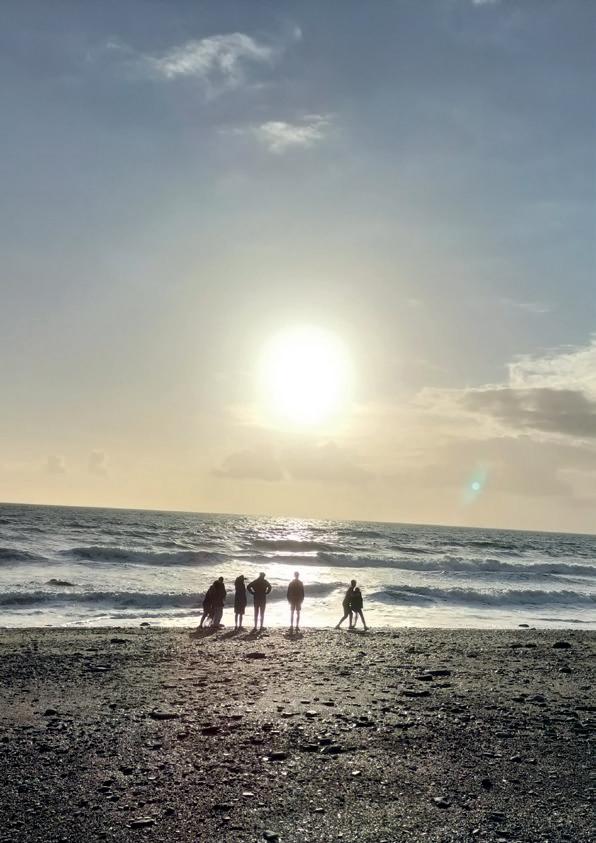
Languages is a thriving discipline at Wolverhampton Grammar School and the Modern Languages department has a history of organising successful trips and educational visits.
A friendly, welcoming atmosphere provided by teachers can always be found in the dedicated Modern Languages Department in School. A German language assistant offers regular conversation classes in small groups or individually.
Learning German can connect you to 120 million native speakers around the globe and it is the official language of Austria, Switzerland, Luxembourg and Liechtenstein as well as the native language for a significant population of northern Italy, eastern Belgium, the Netherlands, Denmark, eastern France, parts of Poland, the Czech Republic, Russia and Romania.
Students must fulfil the entry requirements of Wolverhampton Grammar Sixth Form and achieve a minimum Grade 6 in German at GCSE/ IGCSE.
Any modern language fits well with traditional arts subjects but given the economic importance of this language there is a great advantage to speaking confidently if you are considering a more scientific or industry tailored portfolio of subjects or career. A Level German will be attractive to those who have enjoyed the challenge of German at GCSE and have found the linguistic aspect of work relatively easy.
A Level Unit 1
a) Presentation and discussion of research project
b) Stimulus card discussion
21-23 minutes
30% of A Level
A Level Unit 2
Listening, Reading and Translation
2 hours, 30 minutes
50% of A Level
A Level Unit 3
Critical and Analytical Response in Writing
2 hours
20% of A Level
Modern language graduates acquire skills that are highly prized by universities and employers alike.
On a professional level, speaking and understanding another language opens many career opportunities. German is one of the main languages used in business and international diplomacy. After the fall of the Soviet Union, German became the lingua franca of central Europe, bridging the gap between former Cold War adversaries. Many international conferences and trade shows also use German as their working language.
Students will practise all four language skills (speaking, listening, reading and writing) by studying contemporary and classic literature and films, current affairs and sociohistorical and cultural issues.
Typical topics include:
• Families and citizenship
• Youth trends and personal identity
• Education and employment opportunities
• Regional culture and heritage
• Media, art and film
• Migration and integration
• Cultural identity and marginalisation
• Cultural enrichment and celebrating difference
• Discrimination and diversity
• Initial and subsequent process and re-unification
• Social cohesion
• The economic impact of a united Germany
German opens the doors to the one of the biggest export nations in the world and one of the largest economies. As a fluent speaker of German your skills will be sought after by a range of international companies and brands including Mercedes, BMW, Siemens and Bosch.
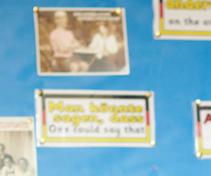



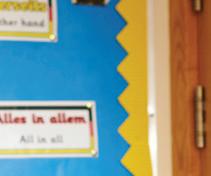

Results
74%
A*-B average from 2023 - 2025
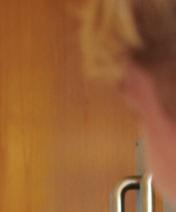
Join the Oxford German Network, travel to Berlin, and attend the Festival of Languages. Students also benefit from Kulturkreis club and 1:1 tuition with native-speaker German assistant.




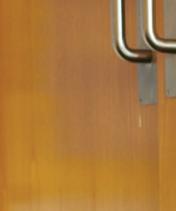
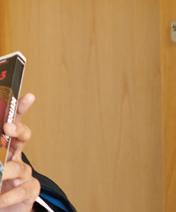
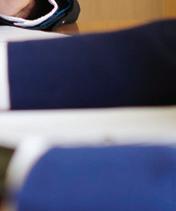
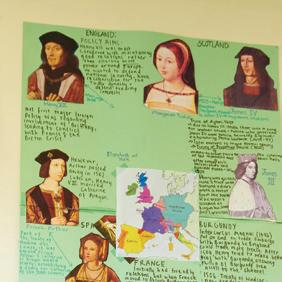
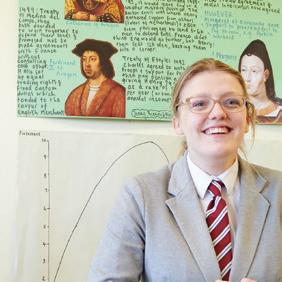
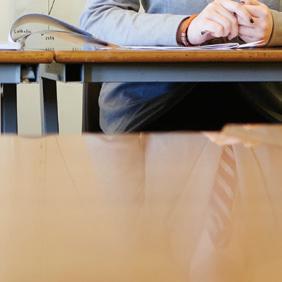
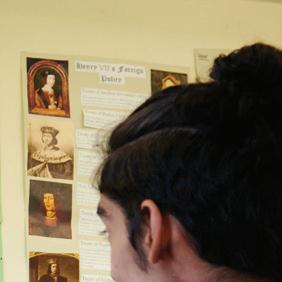
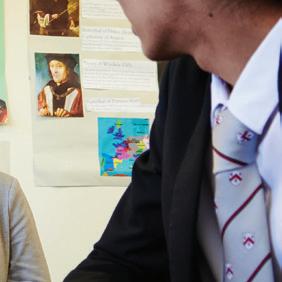

History at A Level is about much more than what happened in the past. It is a civilising discipline, elucidating humanity’s towering achievements, our darkest follies, and everything in between. Students must therefore consider the motives and actions of the people involved in both important and everyday events. The consequences of these actions, both great and small, will be investigated. The course will be stimulating, challenging and exciting. It will involve wide reading and extended writing, as well as vigorous argument in class.
History is a good fit with all A Level combinations, not just those on the arts side. It is valued at university and by future employers because of the skills of argument, analysis and sharp thinking that historians develop in the course of their studies. Students are strongly encouraged to attend meetings of the History Society and Politics Society may also be of interest, as well as visiting speakers of a historical flavour.
Students must fulfil the entry requirements of Wolverhampton Grammar Sixth Form and achieve a minimum Grade 6 in the subject and/or Geography, Religious Studies or English Literature GCSE/IGCSE. The course will require evidence work, using both primary and secondary sources, and essay writing. There is a coursework element in the Upper Sixth.
You will need to be a keen reader willing to reflect and discuss, and then follow up with focused, analytical writing.
Unit 1 is the Breadth Study on Tudor History
This paper considers historical developments over a period of around 100 years, and associated interpretations.
There is one compulsory question linked to historical interpretations.
Students write two essays from a choice of three.
2 hours and 30 minutes
40% of A Level
Unit 2 is the Depth Study on Russian History
This paper considers a period of major historical change and associated primary evidence.
There is one compulsory question linked to primary sources.
Students write two essays from a choice of three.
2 hours and 30 minutes
40% of A Level
Unit 3 is Coursework:
Is there a period of history that you have always been interested in? The coursework unit allows students to write about a topic of their choosing. You will be supported and guided by your History Teacher throughout the process.
A 4,500 word essay on an issue set in the context of a hundred years.
Coursework is worth 20% of A Level
Students can enrich their learning through the History Society, exploring historical debates, current research, and university-style discussions.
• Tudor England 1485 - 1603
• Russia 1917 - 53
• Coursework on a period of history chosen by the student
Students who leave Wolverhampton Grammar School with A Level History have the ability to listen to others, and the confidence to think for themselves.
With your honed analytical, writing, debate and detective skills, you’ll be primed for a huge range of careers in law, finance, politics, the public sector; business, the media, marketing, journalism, economics, teaching, academia, insurance, social research, archaeology and curation (museums, galleries, archives and libraries).
A good A Level pass in Mathematics facilitates the study of any of the engineering and physical sciences, as well as Mathematics and Computing, at university. Economics, Management, Business Studies and Accountancy are other courses to which the subject may lead.
Students must fulfil the entry requirements of Wolverhampton Grammar Sixth Form and achieve a minimum Grade 7 in Mathematics at GCSE/ IGCSE. Good algebra is the key to success in this subject.
Three 2-hour exam papers at the end of the course. They are: Pure Maths; Pure and Statistics; and Pure and Mechanics.
Pure Mathematics: including, but not limited to:
• Algebra
• Calculus
• Trigonometry
• Vectors
• Co-ordinate geometry
Probability and Statistics: including, but not limited to:
• Binomial and normal distributions
• Exploratory data analysis and hypothesis testing
• Use of a large data set
Mechanics: including, but not limited to:
• Displacement
• Velocity and acceleration
• Forces and moments
• Extra and Co-Curricular Activity
average from 2023 - 2025
Maths A Level is a must have for many degrees. Some subjects, like Medicine require you to study two out of Maths, Physics, Chemistry and Biology. Therefore if you do not study Maths, you must be studying two of the three sciences.
Maths is also crucial for studying advanced apprenticeships in Accountancy and Technology and Engineering subjects.
MADDIE BEEBEE
CLASS OF 2020

Joining from Wolverhampton Girls’ High School, Maddie studied Biology, Chemistry and Maths A Level.
“WGS provided me with a very broad arsenal of skills that are already proving to be advantageous above those of my peers. The out-ofclass experiences have been fundamental starting points to draw from in job interviews. I gained an internship in educational research with the University of Durham Chemistry Department last summer and hope to gain an internship in finance in the coming year.”
Wolverhampton Grammar School has a strong track record of developing students who go on to use their maths studies and expertise to achieve academic, professional and commercial success within the financial sector, as well as roles at prestigious universities such as Durham and King’s College, Cambridge. Lord Mervyn King, the previous Governor of the Bank of England is also an Old Wulfrunian.
Further Mathematics as a second Mathematics A Level has a strong track record for excellent results at Wolverhampton Grammar School.
A background in Further Mathematics is valuable if you plan to study Mathematics or an Engineering, Natural Science or Computer Science course at Oxford or Cambridge and for Mathematics at many Russell Group universities.
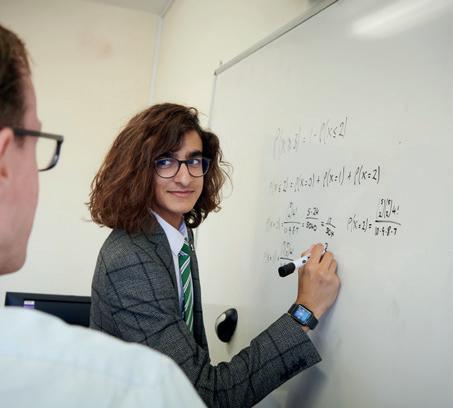
Students must fulfil the entry requirements of Wolverhampton Grammar Sixth Form and achieve a minimum Grade 8 in Mathematics at GCSE/IGCSE. Good algebra is the key to success in this subject.
There are four 90-minute papers at the end of the course. Two Pure Maths papers; one Statistics and one Mechanics.
COURSE COMPONENTS
• Further Pure Mathematics
• Further Probability and Statistics
• Further Mechanics
Maths A Level is a must have for many degrees. Maths is also recommended or sometimes required for: Computer Science, Accounting, Chemistry, Biology and Life Sciences, Medicine / Nursing, Dentistry, Business Studies, Management Studies, Finance, Architecture, Geology, Psychology, Surveying and even Philosophy.
Maths is also crucial for studying advanced apprenticeships in Accountancy and Technology and Engineering subjects.
Wolverhampton Grammar School students have gone on to use their maths studies and expertise to achieve academic, professional and commercial success within the financial sector, as well as academic posts at prestigious universities such as Durham and Cambridge.
A*-B average from 2023 - 2025
Take part in the Maths Olympiad and other challenges to stretch problemsolving abilities and gain valuable experience for STEM-related pathways.
Wolverhampton Grammar School’s music department is located at the heart of our campus, with over 250 students receiving individual instrumental tuition. Sixth Form students are often encouraged to take a lead in music activities with Sixth Formers often establishing their own ensembles. A Sixth Form Music Scholarship is available for gifted musicians who are working at Grade 7 standard and expect to compete Grade 8 by the end of Sixth Form.
There are an extensive range of opportunities to perform in and out of school including teatime concerts, Christmas, Easter and Summer concerts and active participation in regional and national competitions. Many school performances take place in Big School; with its rich heritage, stained glass windows and stunning architecture, it provides a wonderful atmospheric setting. The department has also run international music tours and musicals alongside the Drama department.
Music is considered a highly academic subject, supporting most university pathways. Research shows the benefits of studying music and playing an instrument can be substantial, both academically and socially.
Students must fulfil the entry requirements of Wolverhampton Grammar Sixth Form and achieve a minimum Grade 6 in Music GCSE/ IGCSE and Grade 5 in at least one instrument (or voice). If you have not obtained Grade 5 Theory, you will be expected to complete this.
• Performance recital
• Composition
• Listening and Appraising
Learners must choose either Option A in both Components 1 and 2 or Option B in both Components 1 and 2. All learners must study Component 3.
Component 1: Performing
Option A: Total duration of performances: 10-12 minutes and 35% of qualification
Option B: Total duration of performances: 6-8 minutes and 25% of qualification
Non-exam assessment: externally assessed by a visiting examiner.
Component 2: Composing
Option A: Total duration of compositions: 4-6 minutes and 25% of qualification
Option B: Total duration of compositions: 8-10 minutes and 35% of qualification
Non-exam assessment: externally assessed by Eduqas.
Component 3: Appraising
The Western Classical Tradition (The Development of the Symphony)
Jazz - option
The Twentieth Century
Written examination: 2 hours 15 minutes
40% of qualification assessment
If you are considering pursuing Music at university or a conservatoire, you are normally expected to have studied Music A Level and achieve a Grade 7 or 8 for more traditional courses. Some universities also require at least one essay-based subject such as History or English.
Music graduates have a wide range of career options available to them both inside and outside the industry. Studying music at A Level also provides the perfect mix of social, technical and business skills. Not to mention discipline, composure under pressure, time management, communication, team and individual working ability - all gained from practice and performing. You might also learn technical skills through using computers, equipment and software to create and record music.
There are more jobs than ever in music business-related areas, such as: careers in digital marketing, social media, PR; technology, label services, ticketing and merchandising. It is also common to find music graduates in consultancy, finance, banking, teaching and legal jobs.
A number of former students have gone on to have internationally acclaimed professional music careers.
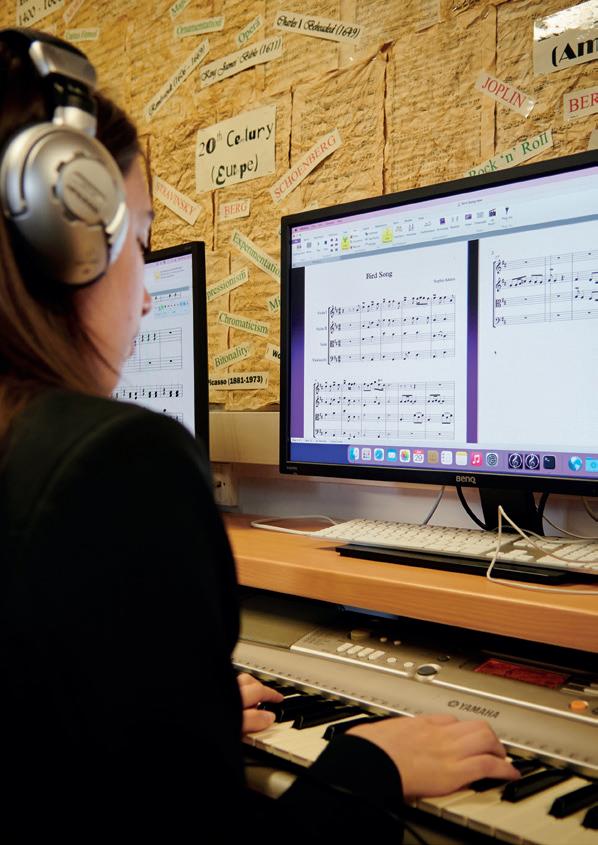
From the Dudley and Lichfield Festivals to charity performances and record label visits, musicians thrive through concerts, ensembles, and masterclasses with leading professionals.
At Wolverhampton Grammar School you will be taught by expert staff in purpose-built Physics laboratories. You will learn a broad range of skills, ranging from mathematical and analytical thought through to presentation and communication skills, making it a highly regarded discipline by both universities and employers alike. As a key STEM subject it also opens the doors to specialist scholarship and funding opportunities in higher education.
Physics students are invited to participate in the Physics Olympiad. Physic students are taught by specialist teachers in well equipped laboratories. The small class sizes enable them to complement their learning with a range of practicals significantly larger then the nationally required practicals. Many students enjoy stretching themselves in the Physics Olympiad and keen prospective engineers get involved in building an electric car in the Green Power racing scheme. We also run a trip to Jodrell Bank Observatory at the end of the Lower Sixth.
Students must fulfil the entry requirements of Wolverhampton Grammar Sixth Form and will be expected to have studied Physics or Dual award science at GCSE/ IGCSE level. Physics A Level is a demanding and popular course and students should achieve a Grade 7 in Physics or a Grade 77 in Dual Science. A Grade 7 in Mathematics would be advantageous.
It is not essential to study A Level Maths with Physics provided that your GCSE Maths is a good standard. Students should also be able to think on their feet and have competent practical skills.
Students can test their skills in the Physics Olympiad and Physics Challenge, and get handson experience through exciting engineering extra curricular club, Green Power.
Paper 1
AS Content - 2 hour exam
34% of A Level
Paper 2
Core A Level Physics - 2 hour exam
34% of A Level
Paper 3
Option topic and practical skills2 hours exam
32% of A Level
COURSE COMPONENTS • Forces and motion
Particle Physics
Waves
Physics A Level gives access to a multitude of careers and uniquely closes the door to none. Previous students have gone on to have a wide range of careers in sectors as diverse as engineering, medicine and finance. This course will prepare you for industries as varied as aerospace technology; energy, power provision and seismology; environmental consultancy; manufacturing and metallurgy; medical technologies; research and development; scientific publishing; and of course, rocket science!
Physics A Level covers the key ideas explaining how the world around us works. It can lead to great discoveries and technologies that can change our lives from healing joints, curing cancer to developing sustainable energy solutions.


A*-B average from 2023 - 2025



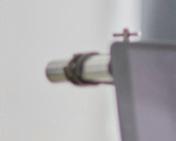

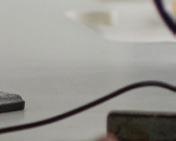


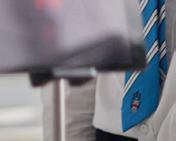
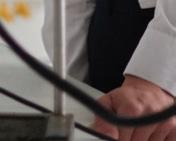









Psychology is the scientific study of the brain and human behaviour. You will learn a range of skills as well as the academic discipline itself. The expert staff who teach you will guide and coach you to actively ‘do’ psychology as opposed to simply study its central assumptions. Psychology is a subject that suits anybody who wants to gain scientific insight into behaviour. It is about unravelling the myths surrounding much of human behaviour and offering empirically testable theories, grounded in controlled experiments. The aim is for stereotypical assumptions to be dismantled and be replaced with concrete, factual analysis instead.
Psychology students may also be interested in signing up to ‘Diversity Champions’ or ‘Mental Health Champions’. Psychology is a popular A Level subject at Wolverhampton Grammar School and complements many other courses of study particularly Biology but also Religious Studies, although there is no prescribed preferential combinations. All students can attend the Psychology Support and Extension lunchtime sessions.
Psychology has also, importantly, been upgraded in status as a science at A Level and this may well be a welcome additional consideration for those who are already intending to include it in their studies but also for those wishing to study Medicine.
Take part in the immersive VR Psychology Experience and Brain Day with Dr. Guy Sutton, while joining initiatives like Mental Health and Diversity Champions.
Students must fulfil the entry requirements of Wolverhampton Grammar Sixth Form and achieve a minimum Grade 6 in a Science, English and Maths GCSE/IGCSE. In addition, good articulacy and strong English language skills will prove invaluable, alongside an inquisitive nature to investigate Psychology outside of the classroom. A sound grasp of mathematical/statistical principles and perhaps Biology, would be advantageous.
The curriculum is designed to focus on the study of human behaviour and explores a number of topics including:
• Social influence
• Memory
• Attachment
• Clinical Psychology and Mental Health
• Approaches in psychology
• Biopsychology including Neurology
• Research methods
• Issues and debates in Psychology
• Forensic Psychology
• Relationships
• Schizophrenia
A LEVEL (AQA)
Paper 1
Introductory topics in Psychology
2 hours
33.3% of A Level
Paper 2
Psychology in context
2 hours
33.3% of A Level
Paper 3
Issues and options in Psychology
2 hours
33.3% of A Level
WHAT NEXT?
There is a range of undergraduate degree options available to you including psychology, law, neurology and criminology; forensics, education, clinical psychology and many more
Psychology is a broad discipline and offers a range of transferable analytical, communication, and interpersonal skills. As a Psychology student you could enter a career in which your knowledge of psychology is a useful foundation, including but not limited to: Counselling, Journalism, Human Resource Management, Marketing, Social work, the Probation Service and the Civil Service.
This subject allows you to explore many of the most important and fascinating questions of human existence and trying to find truthful, or at least reasonable, answers to such questions is an extremely valuable (and enjoyable!) quest. Religious Studies is an inclusive subject, designed for people of any faith or none. The main prerequisite is a curiosity about the world and the way it works.
Studying Religious Studies develops critical thinking: the ability to analyse a point of view; to develop and reason through argument and the ability to reach a logical and justified conclusion. For this reason it is valued by universities and employers in journalism, government, the law and medicine, amongst many others.
Religious Studies A Level would fit well with any arts based or humanities subjects but could equally be a suitable option for any student who is specialising in the sciences but wishes to retain a link to a more abstract discipline that still relates closely to their other studies.
Students must fulfil the entry requirements of Wolverhampton Grammar Sixth Form and will be expected to achieve a minimum Grade 6 in Religious Studies, History or English Literature GCSE/IGCSE.
Philosophy of Religion
• Religious experience
• Evil and suffering
• Self
• Death and the afterlife Ethics
• Ethical Theory
• Natural Law
• Virtue and Situation ethics
• Issues of life and death Christianity
• Nature of God
• Religion and Science
• Self, Death and Afterlife
Paper 1: Philosophy of Religion and Ethics
3 hour written paper
50% of total A Level
Paper 2: Study of Religion and Dialogues
3 hour written paper
50% of total A Level
A* - C average in 2023 - 2025
Students attend the Candle Conference, hearing from leading thinkers and philosophers to deepen their understanding of ethics, theology, and worldviews.
An A Level in Religious Studies can open the door to a wide range of university and employment opportunities.
Future employers could include the Civil Service and government agencies, as well as nongovernmental organisations (NGOs); schools, colleges and universities (for teaching and research positions); charities, voluntary and not-for-profit organisations; social services and other caring professions; the church and other religious organisations; financial and legal firms; the National Health Service (NHS); PR, advertising, sales and marketing companies; the media; Libraries, charities, art galleries and museums.
A*-B average from 2023 - 2025

With theatre trips, the Solihull Shakespeare Festival, and the Senior Production, students develop both performance and analytical skills in a professional creative setting..
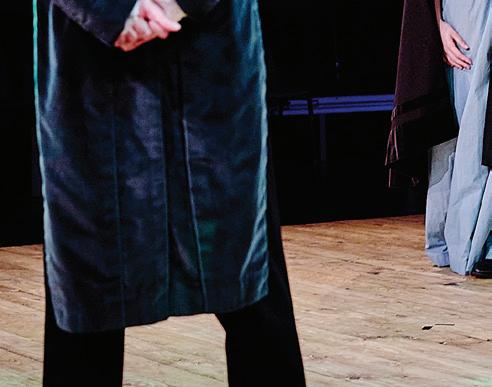

A Level Theatre Studies students take full advantage of the excellent facilities on offer, including the purpose-built Hutton Theatre, which provides a modern professional venue, ensuring student actors and technical support have outstanding physical resources to utilise. Our expert staff can also guide you in set and prop design, lighting, sound, and stage management.
There are opportunities to engage in theatre outside the subject with the Senior Play which enables students to further develop their craft. Visits to local and West End productions also allow students to see professional performances and observe high-level practice.
You will have the opportunity for practical exploration of texts through rehearsal and performance as well as close study of texts that are then examined formally. There are opportunities in the practical components of the course to either perform or design. You will develop a multitude of skills including collaboration and understanding how to amend and refine work in order to make a smooth transition to future study or employment. Theatre Studies is a natural fit with Art, English and Humanities and a very useful adjunct for those studying Sciences. It is highly regarded by university admissions tutors.

Jason studied Theatre Studies, Art and English Literature at WGS. He graduated from the Trinity Laban Conservatoire of Music and Dance with a First Class Honours Degree in Musical Theatre Performance. He is currently appearing in Crazy For You in the West End and has also worked in repertory theatre, UK touring productions and pantomimes.
Jason says, “I had great experiences and encouragement at WGS to pursue a career in theatre and performance, and being involved in the School’s drama productions was a great grounding for later professional training.”
Students must fulfil the entry requirements of Wolverhampton Grammar Sixth Form and achieve a minimum Grade 6 in English or Drama GCSE/IGCSE. Ideally students should also have some previous experience of Drama or practical performance.
An element of this course involves practical work either in performance or design and students should be willing to commit to the time, when required, for those parts of the course that occur outside classroom either in technical preparations or rehearsal and performance.
Component 1
Devising - 40% weighting
Component 2
Text in Performance - 20% weighting
Component 3
Written examination - 40% weighting 2 hours and 30 minutes
• Devising Theatre Performance
• Live Theatre Evaluation
• Page to Stage: Realising a performance
• Text and Interpreting a Performance Text
The academic results in Theatre Studies are consistently outstanding and students have gone on to study a variety of disciplines at leading universities and drama schools. Many students are now writing, performing and working on the professional stage. Other graduates have secured positions in sectors such as the media, advertising and business. Their skills of communication and management developed as part of this subject have supported their professional progression. WHAT NEXT?
Theatre Studies students become confident, outgoing, organised and independent communicators and decision makers; just the kind of skills that are attractive to universities and employers alike.
We are now in our sixth year of offering the Cambridge Technical Introductory Diploma in IT Level 3 at WGS. 82% of our students have achieved Distinction* or Distinction since the course started at WGS, with all others achieving Merit grades.
This award offers the benefit of the same UCAS points as an A Level ICT course but with the added value of a more practical and applied course, making it incredibly attractive to universities and employers alike.
Designed in collaboration with experts spanning the breadth of the sector including IBM, Cisco and the University of Bath, this qualification offers specialist pathways with a focus on the Application Developer. By the end of the course, students will be able to demonstrate the skills of writing specifications, and the design, build, testing and implementation of applications. This can lead on to any degree course in IT, Business or Computer Science, as well as being ideal preparation for careers in software or application development, IT support or computer programming.
COURSE COMPONENTS
• Fundamentals of IT
• Global Information
• Application Design
• Games Design and Prototyping
• Web Design and Prototyping
Students must meet the entry requirements of Wolverhampton Grammar Sixth Form. Students will have an interest in computers and digital technology and will be encouraged to learn how to use specialist software such as Appshed, Wix and GameMaker Studio so that they can add extras to their products in order to achieve the highest marks.

Units 1 and 2 are assessed through written exams. The remaining 3 of the 5 units are internally assessed coursework. Coursework is then externally moderated.
Unit 1 – Fundamentals of IT
One 90-minute exam worth 25% of qualification
Unit 2 – Global Information
One 90-minute exam worth 25% of qualification
Unit 6 – Application Design
Coursework internally assessed and externally moderated.
Unit 15 – Games Design and Prototyping
Coursework internally assessed and externally moderated
Unit 21 - Web Design and Prototyping
Coursework internally assessed and externally moderated.
IT is used in areas as diverse as manufacturing, education and medicine, and IT skills are valued in virtually all areas of business and society. It is a useful subject which further develops the use of applications, and works well in combination with subjects like Business Studies and Economics, or even Music and Art. IT is offered by universities either as a single subject or in combination with a wide range of subjects, e.g. IT and Psychology; IT and Business; IT and Multimedia. The advanced skills you will develop will also be valuable in gaining many types of employment. IT has grown in importance as a subject, to the point where large businesses such as BA, BT, Ford, Fujitsu, IBM, Morgan Stanley, Norwich Union, Royal Bank of Scotland, Sainsbury’s, Symantec and Unilever have recently approached universities and formulated a new degree course to meet a need in their industries the IT Management for Business (Hons), or ITMB, Degree.
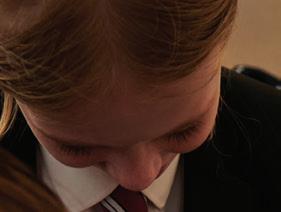
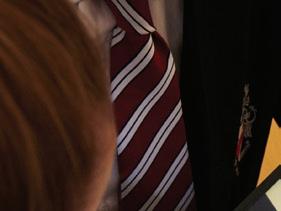
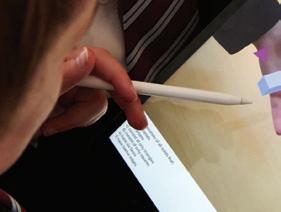

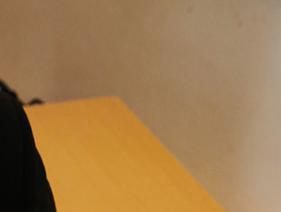
Results 100%
Distinction or higher in 2025
Students develop digital skills through creative projects and tech challenges designed to prepare them for future innovation and problem-solving roles.


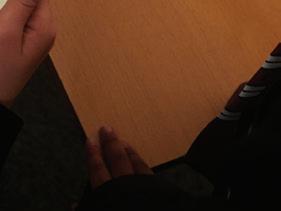
Engage in Careers in Sport workshops, team practices, and Dance Club, with opportunities like the Gold Duke of Edinburgh Award to build leadership and resilience.
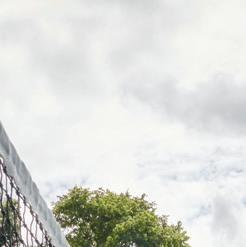
Merit Merit or Higher in 2025
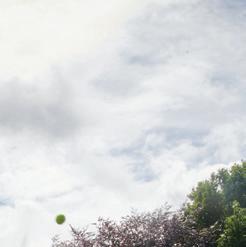
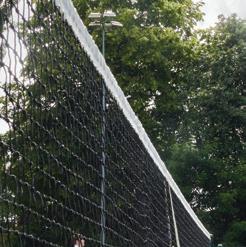
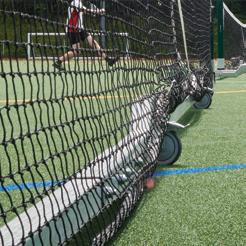

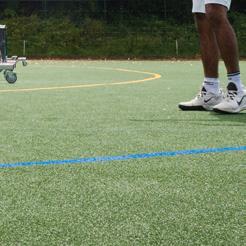



Studying PE provides the foundation for entrance into a wide variety of higher education courses and careers. If you enjoy being active and understanding the psychology of sports as well as physical aspects of exercise, then this subject is for you.
The Cambridge Technical Diploma in Sport and Physical Education enables students to achieve a one or two A Level equivalent qualification, dependent on the number of modules studied.
An OW Sixth Form Sports Scholarship is available for a talented young sportsman or woman who is currently playing at county, regional or national level in their chosen sport. The OW Sports Scholar will be expected to make a significant contribution to the sporting life of the School, representing WGS in competitive matches and attending relevant training. The award is means tested and for students living in a WV postcode; it covers one full fee-paying place.
• Body Systems and the effects of Physical Activity
• Sports Coaching and activity leadership
• Sports Organisation and development
• Practical skills in sport and physical activity
• Sport and exercise psychology
Students must fulfil the entry requirements of Wolverhampton Grammar Sixth Form and will be expected to achieve a minimum Grade 6 in Biology GCSE/IGCSE.
An element of the Cambridge Technical qualification will require the student to perform, or coach, physical sporting tasks in one discipline to a high standard. However, you will not be expected to be “advanced” yet. Clearly, some degree of proven physical ability and/or determination will be regarded as an asset. It is recommended that you are participating regularly in sport, both in and out of School.
Students are encouraged to take part in a number of team sports and to get involved in the coaching of teams from younger year groups.
Physical Education is the first step on the ladder to becoming an accredited Sports Scientist, Coach or Teacher. It is a challenging course which stretches and engages students in a variety of topics including anatomy, skill acquisition and aspects of the social and historical context of the subject. This subject demands the application of both theory and practice.
External assessment.
The Cambridge Technical is a modules-based course. 3 of the 11 modules are assessed through written exams; the remaining 7 are internally assessed coursework. Coursework is then externally moderated.
Unit 1
Body systems and the effects of physical activity.
Written paper.
1 hour 30 minutes (70 marks)
Unit 3
Sports Organisation and Development.
20% weighting
Unit 4
Working safely in sport, exercise, health and leisure.
Written paper.
1 hour 30 minutes (70 marks)
The Cambridge Technical qualification lends itself well to many university degree courses and careers including Physiotherapy, Teaching, Sports Management, Coaching and Personal Training, Nutritionist; Sports Equipment & Clothing Design and many more. It has a natural and close fit with subjects like Biology and Psychology. As well as a successful pathway to many universities, studying this subject has also supported students with their competitive sport performance.















On leaving Sixth Form you are automatically invited to join our community of Old Wufrunians. This now spans over 30 countries worldwide and across several decades of leavers. Belonging to our strong OW community has many benefits for both you and the current school community. You will have the opportunity to return for events and reunions and to keep in touch with WGS news. Our events range from Class reunions, to sporting festivals, art and drama reunions, as well as the annual Old Wulfrunians Association Dinner. We have an annual London reunion and more recently we have had a reunion in the USA and one planned for the North of England this year. It is a fantastic network to be involved with both personally and professionally. We hope that you will also want to be one of our many OWs who come back to mentor current students and share your university and career experiences.







Over the years many OWs have helped us by making donations to the School. These have supported current students with their studies. This may not be something you can consider for some time but please remember us in the future and we would be delighted to talk to you about making a gift.
The Old Wulfrunians have an annual magazine which records the year’s highlights:

They can also connect online via our platform oldwulfrunians.wgs.org.uk to register for events, read school news and network with each other.
If you would like to know more about our OW community please contact the Development Office on email development@wgs-sch.net or call 01902 421326 (Ext. 251/252)
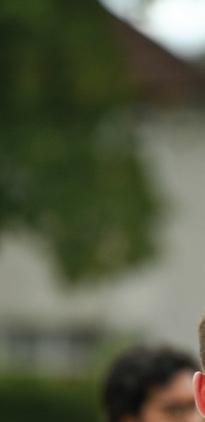
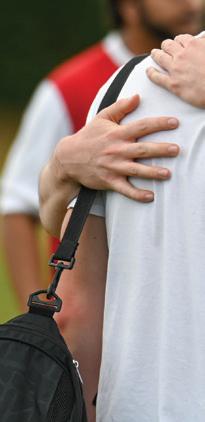


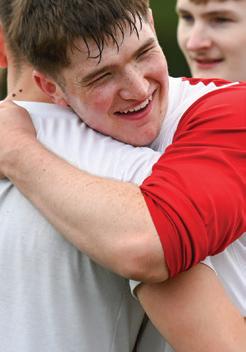




























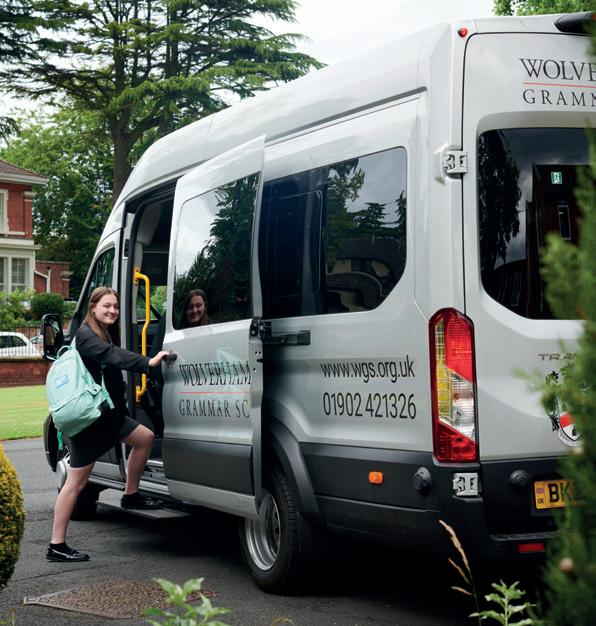
As well as excellent public transport links, Wolverhampton Grammar School is served by a daily school transport service. This operates across the West Midlands and the surrounding counties of Staffordshire and Shropshire. A termly pass, morning or evening only passes or single trip tickets for ad hoc journeys can be purchased. Please contact Diane Hartshorne for further information on dbh@wgs-sch.net.
For Sixth Formers who drive, they can apply for a school parking permit. These are free of charge and allocated on a first-come first-served basis as spaces are limited.

Remember the earlier that you apply, the more flexibility we have to build a timetable to suit the subject options of your choice but it’s never too late to contact us about a place.
• An average GCSE score of 5.5 across a minimum of 7 subjects. This must include a minimum of a 4 in Maths and English Language.
• A minimum of 6 in the majority of subjects* (or associated subjects) chosen to be studied at Sixth Form. (Therefore if Maths and English Language are chosen this will need to be higher than the 4 stated above.) *Specifically in Biology, Chemistry, Physics or Maths we require a minimum of a 7 if chosen to be studied at Sixth Form and an 8 in Maths if students wish to study Further Maths.
• Students who wish to consider undertaking 4 subjects must have an average GCSE score of at least 8.
If you are seeking financial support, you will need to complete a separate financial declaration. Awards of up to 100% may be offered dependent on family circumstances and availability of funding. In order to be considered for a bursary place, as a guideline your household income should not exceed £60,000 per annum.
Complete our online registration form via our website wgs.org.uk for entry in September 2026.
Sixth Form interviews and Taster days normally take place in the Spring term. Offers to join WGS Sixth Form are based on predicted grades at GCSE/ IGCSE. If you meet or exceed your predictive grades you may accept our offer of a place by returning the acceptance paperwork with a nonrefundable fee of £250. If you do not achieve your expected grades, you can still come in to meet our Sixth Form team to discuss your options. The staff are in school on results day and the following day to meet with students.
Ahead of the start of the new academic year, all Lower Sixth students are invited in for an induction day where they can familiarise themselves with the Sixth Form Centre, meet the staff and other students on their chosen courses.
If you would like to be considered for one of our Sixth Form Scholarships, please indicate this at the time of registration. You must fulfil the entry criteria for the Sixth Form in order to be considered for an award. Please contact us if you would like to find out more about the following awards:
• Sixth Form Music Scholarship
• The Old Wulfrunian (OW) Sports Scholarship
• Governors’ Academic Scholarships (Current WGS students only)
To speak to a member of our Admissions team, telephone 01902 422939 or email admissions@wgs-sch.net
Our Admissions team are also happy to connect you with our Heads of Department if you have any subject-specific questions.